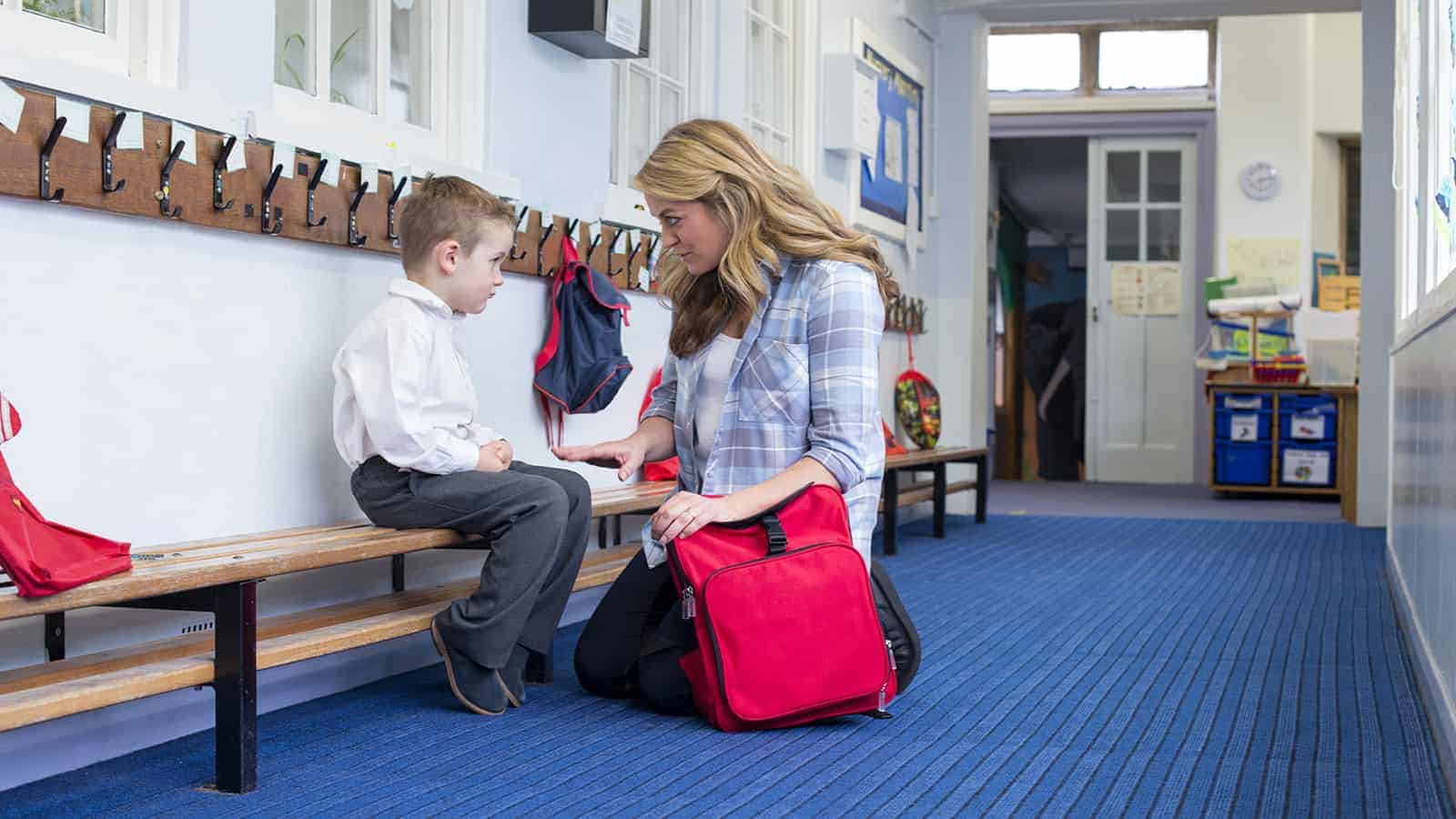Raising children is one of the most challenging tasks a person has to deal with throughout their life. And, when a couple decides to have a child, they have to make sure they’re on the same page when it comes to all aspects. From nutrition and education to child discipline, you must ensure you have the same views on everything.
But no matter how much you talk about these things before the child is born, words and actions are two very different concepts. So, you will inevitably have disagreements when it comes to these subjects. One aspect that is bound to create conflicts between parents is how to discipline kids. Some parents might want to be more liberal and keep punishment to a minimum. Some might feel like it is needed more often.
Of course, when punishment should never be physical. But some parents might ground their kids or take away their allowance or things like that. And, when the parents don’t agree on how to discipline a kid, it will get confusing for everyone involved. So, what are the things that parents should remember when they disagree on child discipline?
Why Is Child Discipline Important For The Development Of Your Kids?
Discipline is a parenting tool meant to teach children how to behave responsibly. When done right, it teaches kids that their actions have consequences. It shows them that they will have to take accountability for their actions.
It also shows that good deeds pay off in rewards. Kids will also start learning what right and wrong mean. And they will learn to manage emotions and actions, thus allowing them to have self-control. But parents aren’t always aware of what counts as child discipline and what doesn’t.
What Child Discipline Means
Many parents think that yelling at their kids can also be used as a tool. But that’s not true. Discipline doesn’t include any form of emotional, verbal, or physical abuse. That means no yelling, no instilling fear in the kid, no hitting them, nothing like that. These methods are not only morally wrong but are also very harmful. If you regularly hit your kids, you will harm their self-esteem, sense of fairness, and you will ruin your relationship with them.
Instead, discipline means being calm and fair towards the child. If they misbehave, show them what they’re supposed to do. Make sure they understand what is right and wrong. Kids should always know what you expect of them. Be civilized and talk politely with them. Be reasonable and understand that kids, especially very young ones, don’t know what’s right and wrong unless you teach them. And, don’t set unreasonable expectations. If they are two years old, you can’t expect them to eat without making any mess.
If you feel like your kid is acting out over and over again, you can start using minor punishments, like putting them in time-out for a couple of minutes. But make sure they are never in distress, and they never feel afraid or anxious when you discipline them.
7 Things For Parents To Remember When They Disagree on Child Discipline
Disagreements are normal in any relationship. But, if you don’t solve them, your kid will suffer. It can lead to communication issues, for example, the kid getting mixed signals from the parents. These conflicts can confuse kids and make them have more questions rather than give them answers. Overall, it’s just not good for anyone to raise a kid in such an environment. So, what can you do to keep disagreements at a minimum?
1. Find Some Common Ground
Most parents love their kids wholeheartedly and want only the best for them. But people can also be very stubborn, and they often have a “my way or the highway” mentality. This can lead to conflicts, as people are prone to see only the bad things others do. They take the good for granted, and when disputes arise, they can only focus on the negative.
If you and your partner start disagreeing on discipline methods, take a step back and reflect on the other’s behavior. Ask yourself, what does my partner do that I agree with? Maybe you like their tone. Perhaps they explain things well. No matter what it is, you are bound to find something you agree with.
And when you find that common ground, try to build a better discipline method starting from that commonality. You can use this as a positive foundation to rebuild a better discipline system.
2. Discuss Your Core Beliefs About Child Discipline
More often than not, you will disagree on the methods. Still, you will have the same goal in mind. But when your core beliefs differ from your partner’s, that’s when you will find that you disagree the most. So, it might be worth it to sit down and chat about everything, starting from the principles.
When you disagree, it’s essential to understand where exactly you two differ. But that will only help you in the short term. To truly change things up, you need to know why you disagree. Maybe you think that a 10 PM curfew for a teenager is reasonable, but your partner is pushing for no curfew at all. Understand why that is.
Do they think teenagers will learn to be more responsible if they have more freedom? Or do they want to let them party for as long as they can? Maybe you want to ground the kid if they break curfew, while your partner might not believe in grounding kids.
Discuss all the issues you have and understand where the other is coming from. When you know why you disagree, you can start talking principles until you reach a common ground.
3. Set Some Ground Rules
Your parenting goals and style will change as time passes. But there will always be some ground rules that both you and your partner will want to set in place. And, if there aren’t any rules that both of you agree on, work on creating a list. Start with basic safety rules, like a curfew.
Set in place some respect rules, for example, that they should never use bad words. Depending on their age, you can ever assign them some chores. It would be best if you also discussed what reward to give the kids when they respect the house rules.
When you create a list of rules, you can always use that as a reference point when you and your partner fight. Even if you disagree on some detail, your kid will always have some boundaries to respect and a basic routine to follow.
4. Always Try To Be Respectful When Deciding On Child Discipline
This applies to your relationship with your children and your relationship with your partner. Whenever you disagree with your partner, remember not to act out. There’s no reason to turn the disagreement into a full-blown fight. Instead, try to teach yourself to approach all conflicts with respect.
Instead of being aggressive and trying to call your partner out, set out to hear them out. Listen to what your partner has to say, and be understanding. Maybe they have a point that you didn’t think about before. And, when you and your partner are respectful towards each other, you will deescalate all conflicts much quicker.
5. Act Like A Team When It’s Time To Implement Child Discipline
As parents, you always need to remember that you are a team and you fight for the same goal: to give your children a good life. You both want what’s best for them, and you’d both do anything to get there. So, if you disagree on specific topics, don’t let that affect how the kids see you. It would help if you always looked united, even though you might not sometimes be.
This way, you will be good role models, and you will show them what good behaviors look like. Having a united front is also crucial for having consistency regarding what methods you use. If you always discuss rules and boundaries beforehand, the kid will never receive mixed signals. This way, there will be no confusion, and a routine will be created.
6. Compromise
When it comes to discipline, compromise is vital. Both parents have to be on board with an idea to be enforced successfully. So, don’t try to enforce a rule by yourself, and don’t go behind your partner’s back.
It would be best if you always were ready to compromise and think about long-term goals. Set your ego aside, and try to focus on your child’s well-being above all else. It doesn’t matter that a rule might not be your parenting style. If it works for your kid and your family, then it’s good discipline. And, that’s ultimately what matters.
7. Seek Professional Help
As parents, you want to feel like you know what’s best for your child. But that can’t always be the case. If you feel like you keep disagreeing with your partner on the topic of discipline, try getting another opinion. That’s why professionals exist. To help people get the advice and guidance they need in every aspect of their lives.
Tons of parenting classes can educate you on various parenting styles and discipline methods. And, if those don’t seem helpful, you can even try couple’s counseling. All of these methods are available both online and in person. And there is something out there for everyone. Even if you don’t want to seek that help now, keep in mind that you have that option.
Final Thoughts On Some Things To Remember When You Disagree on Child Discipline
Raising kids is a full-time job. It requires a lot of hard work and dedication. And, couples are bound to disagree on how to raise kids. And, one of the things that people disagree on the most is how to discipline children.
Everyone was raised differently, and they have different perspectives regarding what rules should look like. Remember is that there will always be a common ground. You will always be able to talk through your issues. You both have the same goal. When it comes to parenting, you are a team, and you should never forget that. And, if you feel like you can’t solve these conflicts regarding child discipline alone, you can always seek professional help.




















